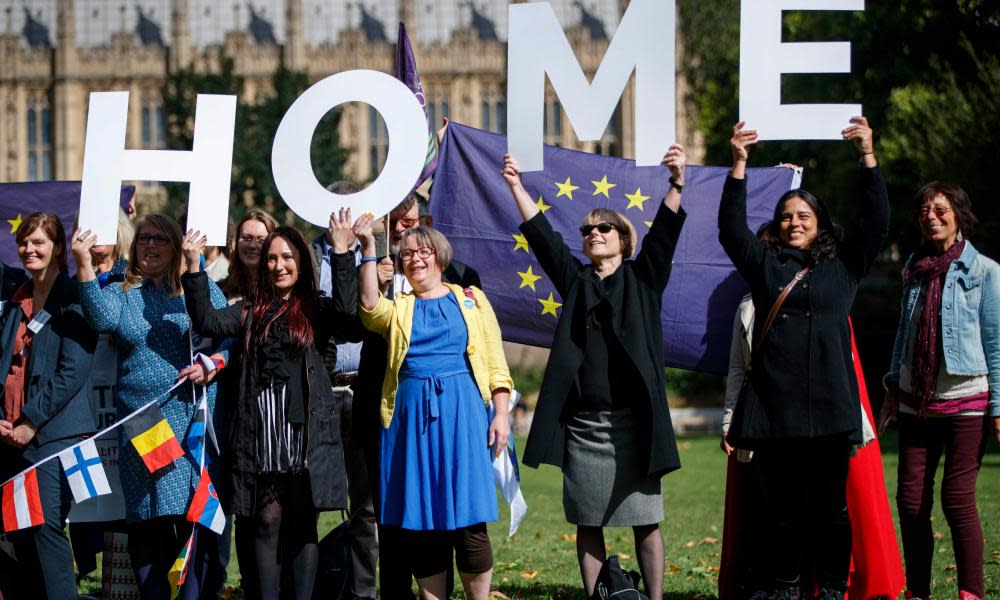EU citizens’ rights are our rights too. Tory intransigence is a threat to both | Diane Abbott

The debate on what are called EU citizens’ rights has become mired in Tory party intransigence and infighting, like much else to do with Brexit. But one of the key reasons for the current dangerous impasse is that the entire debate is framed incorrectly. These are human rights, and as such they affect us all.
The Brexit secretary, David Davis, recently told parliament: “It is a straightforward statement of fact that our proposals go further and provide more certainty than those of the commission.” But this is untrue. He lists a whole slew of rights that are not being offered, such as mutual recognition of professional qualifications, the right to vote, freedom of onward movement and the right to return within the EU, the right to a family life and the right to claim the same in-work benefits as other workers, and so on.
None of these rights is currently guaranteed under this government’s proposals. And, while the Brexit secretary was speaking, the home secretary, Amber Rudd, told a parliamentary committee that the “default position” was that EU nationals already here would be granted settled status to remain. A general default position is not a guarantee. So, it is clear, the claim that the UK is making a generous offer, or that it surpasses the EU offer, is false.
There has been a widespread failure to report the EU offer on this important issue. In May the EU set out its own working paper wherein the very first principle is that there would be the “same level of protection” under the law as it exists at the time of Brexit for both UK and EU citizens. The second point is that there must be equal treatment of EU and UK citizens both here in the UK and in the EU itself. The paper continues in the same vein: this is not generosity – it is fairness.
Whenever this issue is discussed, some complain that there is an undue, even a sole, focus on EU citizens’ rights, and ask “What about the rights of UK citizens in Europe?” This completely misses the point that the EU is offering reciprocal rights. They apply just as much to UK citizens as to EU ones. In fact, proportionately the UK is the biggest beneficiary of existing and proposed fair arrangements. There are more than 3 million EU citizens living in the UK. But this a far smaller share of the EU population than the 1.2 million British migrants to the EU represents.
These rights benefit us all. This is not the case only for those who currently live or work in the EU, or used to do so, or those who benefit from that option, or have friends and family who do – which must surely be a large part of the UK population. But the rights to establish a business, to social security, to healthcare, or the right to a family life are all included in current EU rules. Who in the cabinet can be trusted to uphold these rights in the absence of a deal?
There is a further, economic argument. There are nearly 2.4 million EU nationals working in the UK. When there are already labour and skills shortages in everything from the NHS to engineering, from professional services to car repair, the threat of “no deal” is really the Tories placing a gun to our own head. No wonder the EU cannot believe some of the ministerial pronouncements.
UK and EU citizens’ rights affect us all. There can be no progress on initial trade talks without an agreement on this issue, as well as the divorce bill and the Irish border. It is way past time for the Tories to stop prioritising their own jobs and prosperity. They should start prioritising the jobs, rights and prosperity of all those living here and UK citizens in Europe.
• Diane Abbott is the shadow home secretary

 Yahoo News
Yahoo News 
